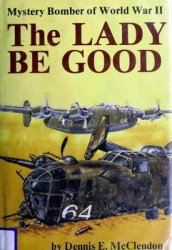Is there a consistent use of Catullus by Vergil? The answer to this question, incomplete though it must be, can tell us something not only about Vergilian poetry but also about Catullus: what features of Catullan poetry did the most distinguished poet of the next generation find significant? Who is Vergil’s Catullus, and how does he differ from ours?
One important general feature of Vergil’s engagement with Catullus has, as far as I know, gone unremarked. Nowhere does he signal interest in Catullus as a human being, whether as a historical person or as a type of the poet. Examples of Vergil’s practice with another poet will make this clearer: near the beginning of the third Georgic (3.8-9), Vergil clearly refers to lines from Ennius (fr. 46 Courtney), but these
Lines are a first-person bit of self-assertion by Ennius; thus Vergil’s allusion is both to Ennius’ text and to Ennius’ self-construction as a person. By using Ennius’ first-person statements in his own first-person programmatic statement, Vergil lays claim to status as a new Ennius, writing himself into a tradition by ‘‘becoming’’ a famous predecessor (Hinds 1998: 52-98, esp. 52-5). Similarly, Vergil cites several authors not only as texts but as individual poets whom he uses in a program of self-definition. Catullus, however, is represented not by first-person statements but only by references to specific texts. Thus Vergil’s Catullus is not the lover of Lesbia or even the neoteric poet; Vergil’s Catullus is a body of poems. Even when he cites two of Catullus’ most personal first - and second-person lyrics, poems 11 and 101, Vergil does not use the earlier poet’s first-person words to define his own first-person voice. Thus while Vergil is a ‘‘modern’’ Homer, Hesiod, Apollonius, and Ennius, he is not a latter-day Catullus. Catullan poems are sources for his works but not models for his identity as a poet. Vergil’s Catullus is largely a poet of loss (potential or actual), grief, abandonment, and even death. His Ariadne, as we have seen, recurs throughout Vergil’s poems, epitomizing for him abandonment and the disillusioned outrage that grips us when we realize a promise has been broken. Catullus’ Theseus represents for Vergil the pain that negligentia causes and the damage it does to personal relationships. Poem 101 is for Vergil the ultimate example of the personal side of epic, an odyssey that undoes the Odyssey, that ends in separation not reunion. Arkins (1986: 35) is worth quoting here: ‘‘In general Virgil draws on the highly individualistic poet Catullus when he wants to stress the pathos of what happens to individual persons.’’ It used to be thought that the Augustan poets had turned their backs on the new poetry of Catullus and others of his generation, but, as the preceding examples have shown, Catullus plays a crucial role throughout Vergil’s works.




 World History
World History









